 Petzlover
Petzlover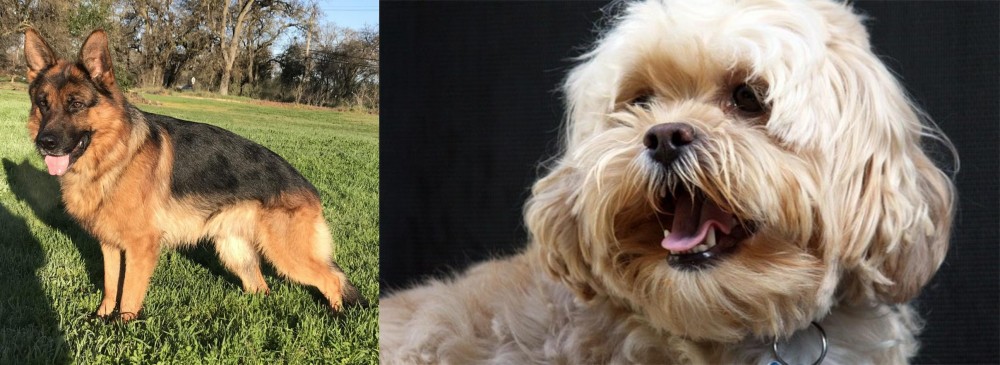 German Shepherd is originated from Germany but Lhasapoo is originated from United States. German Shepherd may grow 39 cm / 16 inches higher than Lhasapoo. German Shepherd may weigh 38 kg / 84 pounds more than Lhasapoo. Both German Shepherd and Lhasapoo has almost same life span. German Shepherd may have more litter size than Lhasapoo. German Shepherd requires Low Maintenance. But Lhasapoo requires Moderate Maintenance
German Shepherd is originated from Germany but Lhasapoo is originated from United States. German Shepherd may grow 39 cm / 16 inches higher than Lhasapoo. German Shepherd may weigh 38 kg / 84 pounds more than Lhasapoo. Both German Shepherd and Lhasapoo has almost same life span. German Shepherd may have more litter size than Lhasapoo. German Shepherd requires Low Maintenance. But Lhasapoo requires Moderate Maintenance
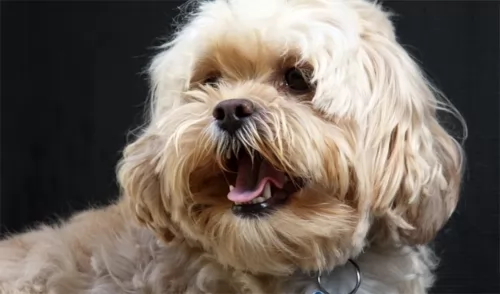 Such a cute, cuddly teddy bear of a dog is popular with everyone who just wants a wonderful canine companion.
Such a cute, cuddly teddy bear of a dog is popular with everyone who just wants a wonderful canine companion.
Both the Lhasa Apso and the Poodle are ancient dog breeds and they are the two breeds that have been used to bring about the Lhasapoo. The Poo has been bred to essentially be an indoor dog.
It would appear as though the Lhasapoo was developed in the United States of America, as in 1933, a pair was given to an American traveler who developed a kennel.
 The GSD is very good for being a watchdog and hence it do not welcome guests to home.
But when trained from a puppy it will suit itself for making new friends. GSD like to be
always with somebody and they can be its master or his family members or else its partner.
The GSD is very intelligent and active hence they should be always kept busy, exercised
and playing. Nowadays many of them are trained well and made as four legged stars.
The GSD is very good for being a watchdog and hence it do not welcome guests to home.
But when trained from a puppy it will suit itself for making new friends. GSD like to be
always with somebody and they can be its master or his family members or else its partner.
The GSD is very intelligent and active hence they should be always kept busy, exercised
and playing. Nowadays many of them are trained well and made as four legged stars.
When we see all around the world many of them are involved in helping the physically challenged people. Also they are very important personnels in working with police and military for finding the criminals. Their excellent sniffing power works very good when given proper training for finding illegal smuggling. But basically the breed was set in to herd the sheep and protect them from predators.
Based on the popularity they are ranked 2nd in US and 4th in UK.
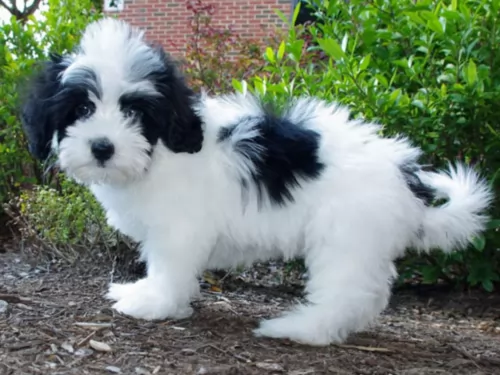 The Lhasapoo is a mix of Poodle and Lhasa Apso. He is a small dog standing between 25–28 cm in height and weighing 4 – 6kg.
The Lhasapoo is a mix of Poodle and Lhasa Apso. He is a small dog standing between 25–28 cm in height and weighing 4 – 6kg.
Known as a designer breed, his small size allows him to adapt to life in the city or to the countryside. He is such a cute little dog with his alert face, his bright brown eyes, short legs and floppy ears.
His coat is thick and dense and can be curly or fairly straight. It comes in a number of solid colors – apricot, tan, cream, brown, white and black or he can be bi-color – any of these colors mixed with white. In fact, as a crossbreed he can inherit the looks of either dogs – the Poodle or Lhasa Poo. Because he has poodle in him, these dogs are sometimes spoken about as being hypoallergenic.
Small and gentle in nature, the Lhasapoo makes a splendid pet and companion for everyone. He is such an amicable small dog, getting on well with both children and other pets in the home.
You can’t really tell what kind of a dog he’ll turn out to be in terms of his character, because he can be quite aloof if the Lhasa side of him is stronger or he could be playful and friendly if the Poodle side of him is stronger.
 The GSD is a very good child friendly dog, they love to play with kids.
The GSD is a very good child friendly dog, they love to play with kids.
They adopts both hot and cold climates, but they like cold weather very much and also their body is suitable for cold than hot.
The GSD has high ability to learn tricks and also they are interested in learning. As they have very high intelligence they learn very easily and quickly.
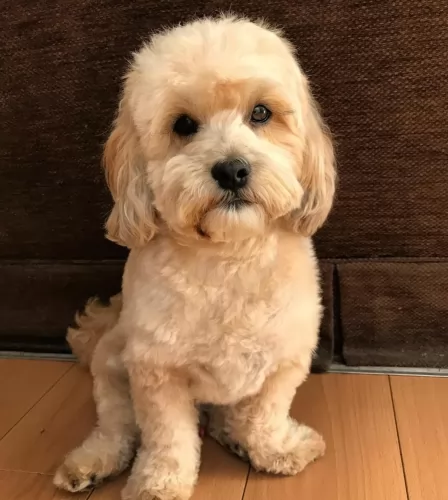 The Lhasapoo is a crossbreed, so you never know what you’re actually going to get – a little bit of Lhasa or a little bit of Poodle.
The Lhasapoo is a crossbreed, so you never know what you’re actually going to get – a little bit of Lhasa or a little bit of Poodle.
One thing is for sure though – you’re going to get the cutest little pet ever. He is a friendly, affectionate dog, but the Lhasa side of him makes him wary of strangers, making him an excellent watchdog.
They have a moderate activity levels and will adapt easily to life in the city or in the countryside, but they will need a walk every day to ensure he doesn’t become unfit and obese.
Lhasapoo puppies are adorable but every cute puppy grows into an adult. Then it’s time to show you’re a responsible dog owner by continuing to love and care for your adult Lhasapoo so that he becomes the wonderful companion he is designed to be.
 The GSD has the chances for getting orthopaedic diseases such as hip dysplasia
and elbow dysplasia. Other common orthopaedic problems which affects GSD are Panosteitis,
Osteochondritis and cruciate ligament rupture.They also get some skin problems such as
allergies and pyoderma. Digestive problems such as chronic diarrhea and colitis are
also seen in GSD.
The GSD has the chances for getting orthopaedic diseases such as hip dysplasia
and elbow dysplasia. Other common orthopaedic problems which affects GSD are Panosteitis,
Osteochondritis and cruciate ligament rupture.They also get some skin problems such as
allergies and pyoderma. Digestive problems such as chronic diarrhea and colitis are
also seen in GSD.
GSD is a continuous shedder. They are having a two layer coat. They should be brushed daily as it will remove the dead fur and thus prevents shedding.
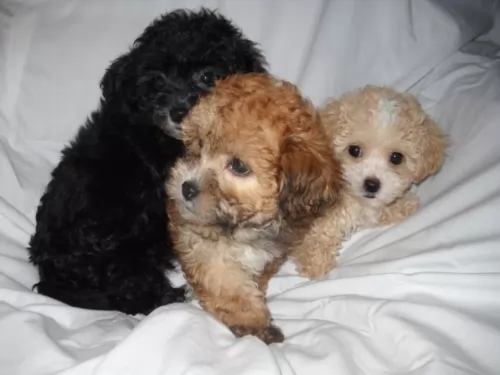 All dogs have the potential to become ill but when you give your dog the best chance to eat well and he is loved and cherished, he can live a long life.
All dogs have the potential to become ill but when you give your dog the best chance to eat well and he is loved and cherished, he can live a long life.
The Lhasapoo can live to be 15 years of age if you treat him well and ensure that he has a healthy diet. Of course as a crossbreed, his chances of developing inherited diseases is limited.
Watch out for Bloat, particularly if your pet gobbles up a large bowl of food. It is better to feed him 2 smaller meals a day. There are some time-releasing food bowls available for pets to encourage slower eating.
With Bloat, you’ll notice your pet’s stomach is swollen up. Complications set in when the stomach turns or twists as fluid and air can’t escape. Your dog will also be restless, drooling and trying to vomit. Bloat is a life-threatening illness.
This can be a complication from disease or medications even. It is important to keep your pet’s teeth healthy as chronic kidney disease can be caused by dental disease too. Bacteria from the diseased teeth and gums enters bloodstream and damages vital organs like the kidneys.
 The GSD should be given an cool environment which they will enjoy a lot.
The GSD should be given an cool environment which they will enjoy a lot.
The GSD puppy should be fed small quantities of food but several times per day as it needs to gain 2 gms weight per day. The preferred food for them is dry food along with raw liver pieces which would provide them excellent energy. The protein food given to puppy should contain 25 to 30% calories. Puppies consume more food when compared with adults.
The GSD needs a food which has a considerable amount of protein. They are carnivores in the nature. The protein can be given from cooked meat. The artificial food products will not be suitable for them. When are provided with protein food they will gain fat from itself. The recommended fat content for GSD is 5% to 8%.
The GSD should be provided with a nutritional food for their good health.
Physical exercises are very much needed for GSD since they are very energetic and power packed. It is highly recommended to make them play and run daily as they don't need to get bored. They can be made to climb in hilly areas as they want to explore their surroundings. They can be made to swim or play hide and seek and find the missing objects. Regular morning walk will be very good for them.
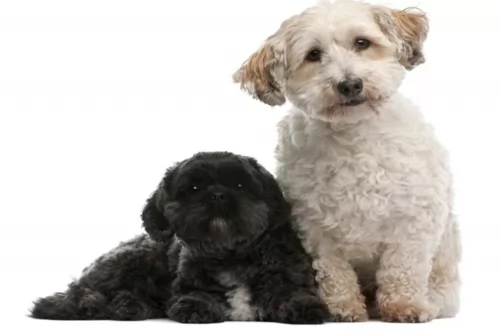 The Lhasapoo is a dog breed that likes to spend time indoors. Because of his looks, his human family members will no doubt be vying for his attention and playing indoor games with him. It will do him good to get out for a walk every day as this gives him the chance to sniff around and smell different things and experience life outside his home.
The Lhasapoo is a dog breed that likes to spend time indoors. Because of his looks, his human family members will no doubt be vying for his attention and playing indoor games with him. It will do him good to get out for a walk every day as this gives him the chance to sniff around and smell different things and experience life outside his home.
The Lhasapoo isn’t a big eater and he will require top quality food for small breeds. He isn’t a big meat eater so a tiny bit of cooked chicken, rice and vegetables chopped up nicely and added to his kibble from time to time will keep him healthy and happy.
Being the crossbreed that he is, you can’t be too sure about the type of coat your Lhasapoo will have. It can be curly, wavy or straight. Most inherit curls.
A Lhasapoo coat looks wonderful when it has been professionally groomed, and then in between grooming, his coat will need to be brushed to prevent tangling. While you’re brushing him, check his eyes too. Sometimes he can develop tear stains beneath the eyes and you can wipe gently around his eyes.
Other grooming for your cute little dog includes having his nails clipped as well as checking inside the ears for infection. Excess wax and dirt can result in an ear infection. You’ll notice your pet shaking his head, the insides of his ears might be red and he wants to scratch his ears. Get him to the vet who will show you how to keep his ears clean and dry.
Also, brush his teeth with special canine toothbrush and toothpaste. Dental disease won’t only damage his teeth, it can cause problems with other parts of the body too.